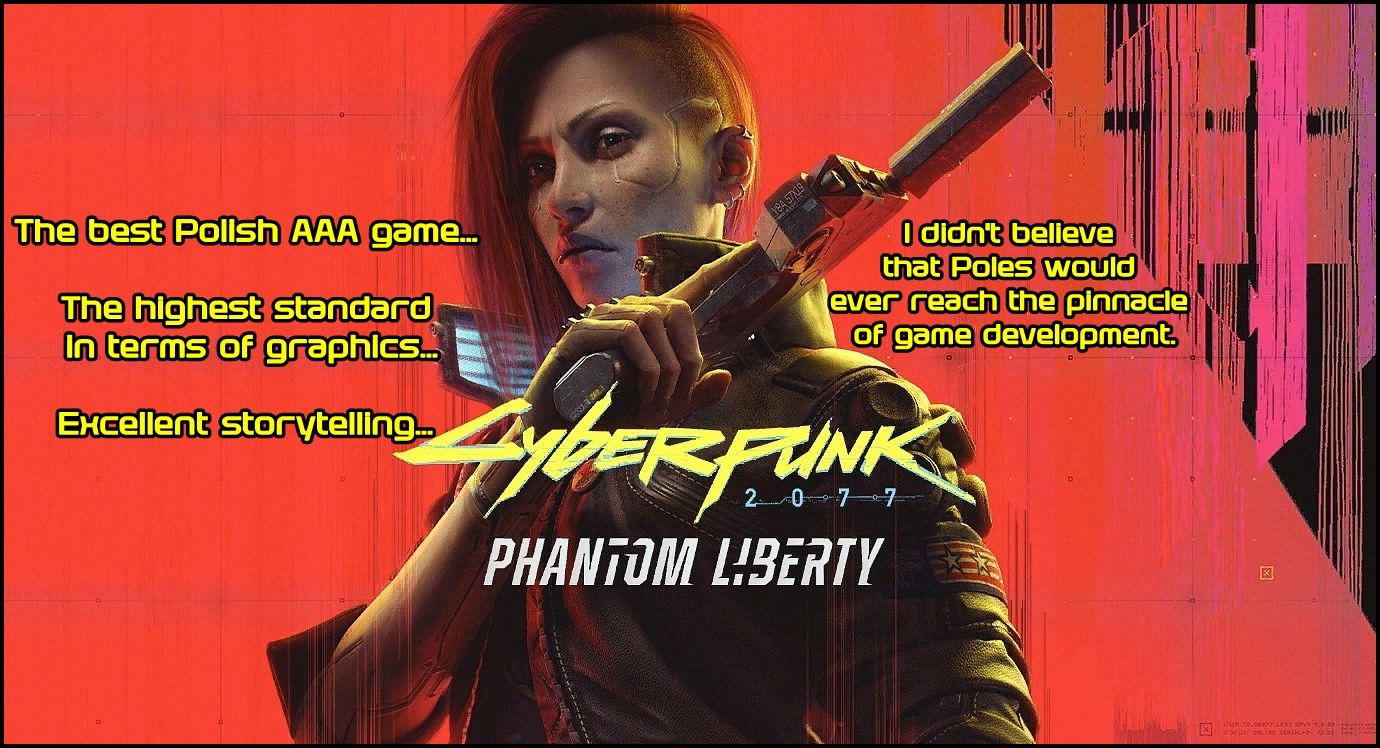
[Introduction] A note from me before the review. Initially, I planned to play the DLC after platinum-winning Returnal, but I lost interest in CP2077. In the meantime, somewhat out of boredom, I started playing Doom 4. I finished it, but I still didn't feel like playing Phantom Liberty. This only changed after beating Doom 3, which somewhat affected my experience with the add-on. I mean, I forgot a few of my initial impressions. Now that we've gotten that out of the way, the game really holds up. Warning! The videos contain spoilers, and the last three reveal the ending.
Remember what paid add-ons were called before that unfortunate horse armor appeared in Elder Scrolls: Oblivion? Oh, if only we players knew back then where it would lead us... They were called add-ons or paid expansions. These sometimes advanced the plot, like Frozen Throne for W3 / Brood War for SC1. Sometimes they were mission packs, like expansions for C&C or RA, which sometimes included new mechanics or new content in a different form. Sometimes they were something in between, like, in my opinion, an expansion for WarCraft 2. I know, I'm only talking about RTS, but a more or less similar principle applies to other types of games. We didn't always get good expansions, but contrary to the current narrative (which has been going on for several years now), not all of them were failures. It's worth remembering the add-ons for Half-Life 1, Diablo 2, Icewind Dale, Baldur's Gate 2, HoMM 3, Tomb Raider 2, Gothic 2... Why did I write about this? Because the first and only DLC for CP2077 was created with precisely that intention. A solid addition at half the price of the original. W3 Frozen Throne and SC: Brood War turned existing gameplay upside down, even though they're essentially the same game. Returnal created a "new game" (a deliberate oversimplification on my part) based on the original. Both are very similar, but also differ sufficiently from each other, like LoL vs. DotA2. Phantom Liberty, on the other hand, was clearly developed as a separate project, in terms of the script. In a sense, it's still a CDPR game, a continuation of what we liked in Night City, but slightly different in terms of narrative and emphasis. It feels more or less like a change in management at a company that produces products we love. They have to preserve what we know, but also introduce certain changes that will inevitably impact them. It's like my comparison of Returnal to Returnal Ascension, only slightly different and "more" due to the greater complexity of the CP.
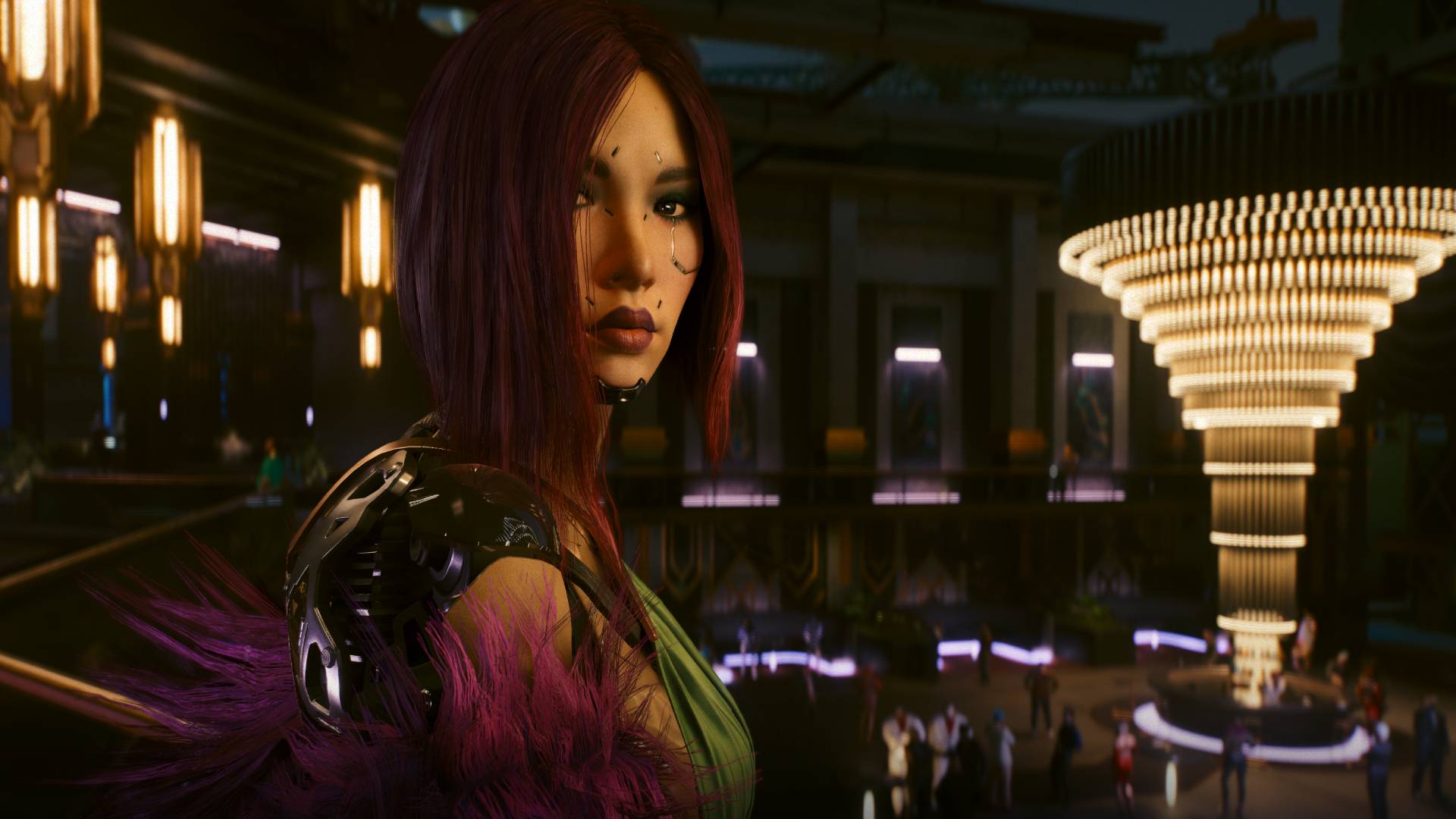
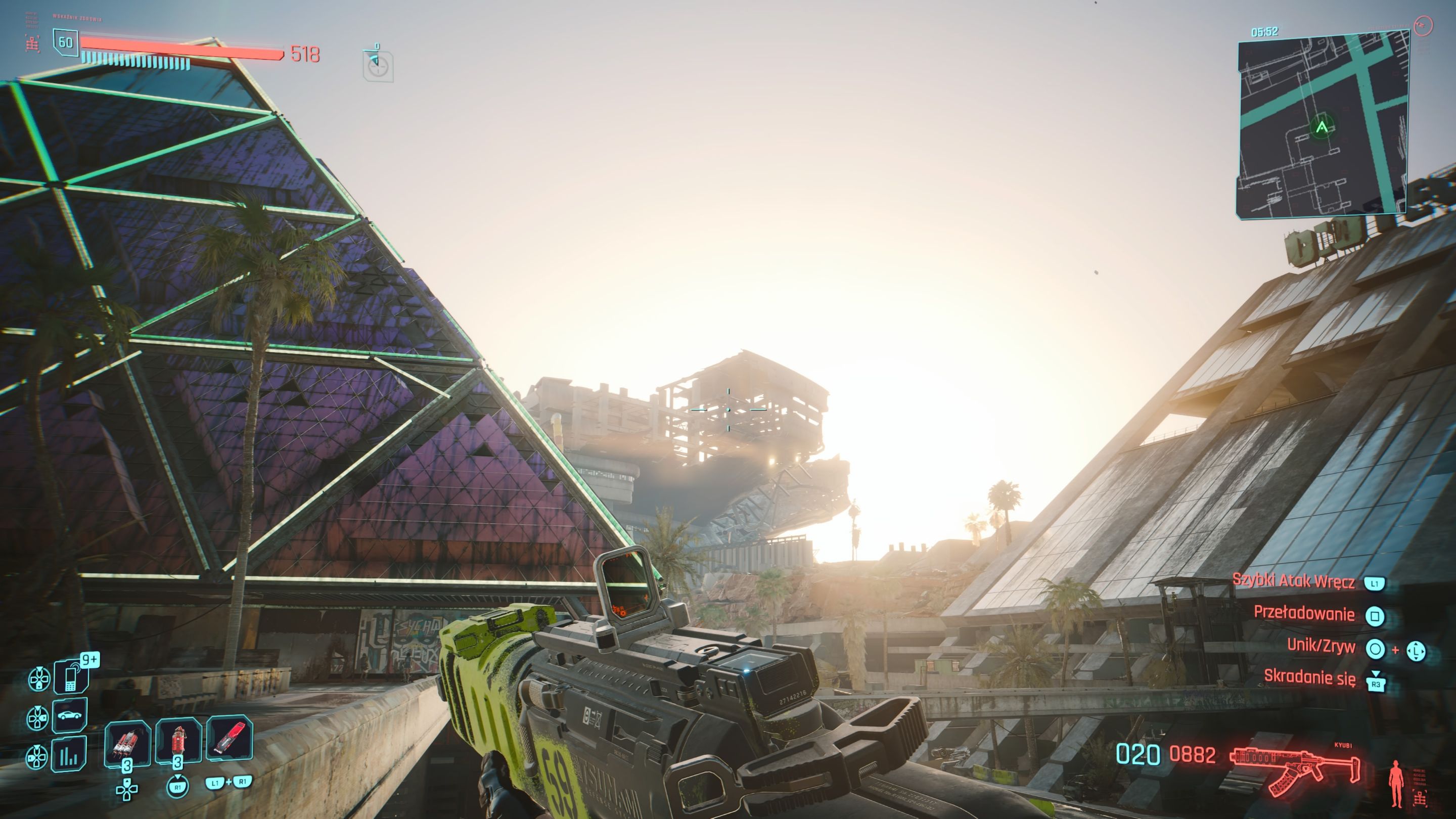
[Story, Characters & Atmosphere] The DLC takes place during the original story. It's unlocked after completing a quest for the Voodoo Boys. The story fills in gaps that weren't considered during the main product's development. Or there wasn't enough space or time. Sometimes, a project expands significantly on the original concept, thus forgetting certain points or mechanics. I can't pinpoint them because I haven't been to Night City in a while and haven't played the DLC long enough. However, this is evident in the example of V's first companion. Many reviewers, including myself, felt that at some point the decision was made to drastically shorten their story. It's no wonder, the game is enormous, and the focus should have been elsewhere. Let's be honest, CP2077 reveals its beauty after the companion's death, and Jackie merely delayed it.
On the other hand, because of this, the producers understood that a product must be developed based on a plan. This isn't my interpretation; it's a fact – they admitted it themselves a few years ago. A friend of mine who works as a programmer (and knows the subject) was shocked when CDPRed announced that they were changing their game development method to the one I'm talking about. To summarize, because this isn't a lesson in planning – unless you're an autistic genius (and even for them, it's incredibly difficult, unless they have plenty of time, the comfort of free time, have as much industry experience, and are downright inhumanly determined – Hideo Kojima, for example), you need to have a plan. Many things from the planning stage won't make it to the final stage for various reasons. It doesn't matter what. If you have a plan, even if you have no idea what to do next, it's easier to come up with a solution. If a certain mechanic doesn't work or something else is causing a problem, you go back to a checkpoint instead of wandering around in the code.
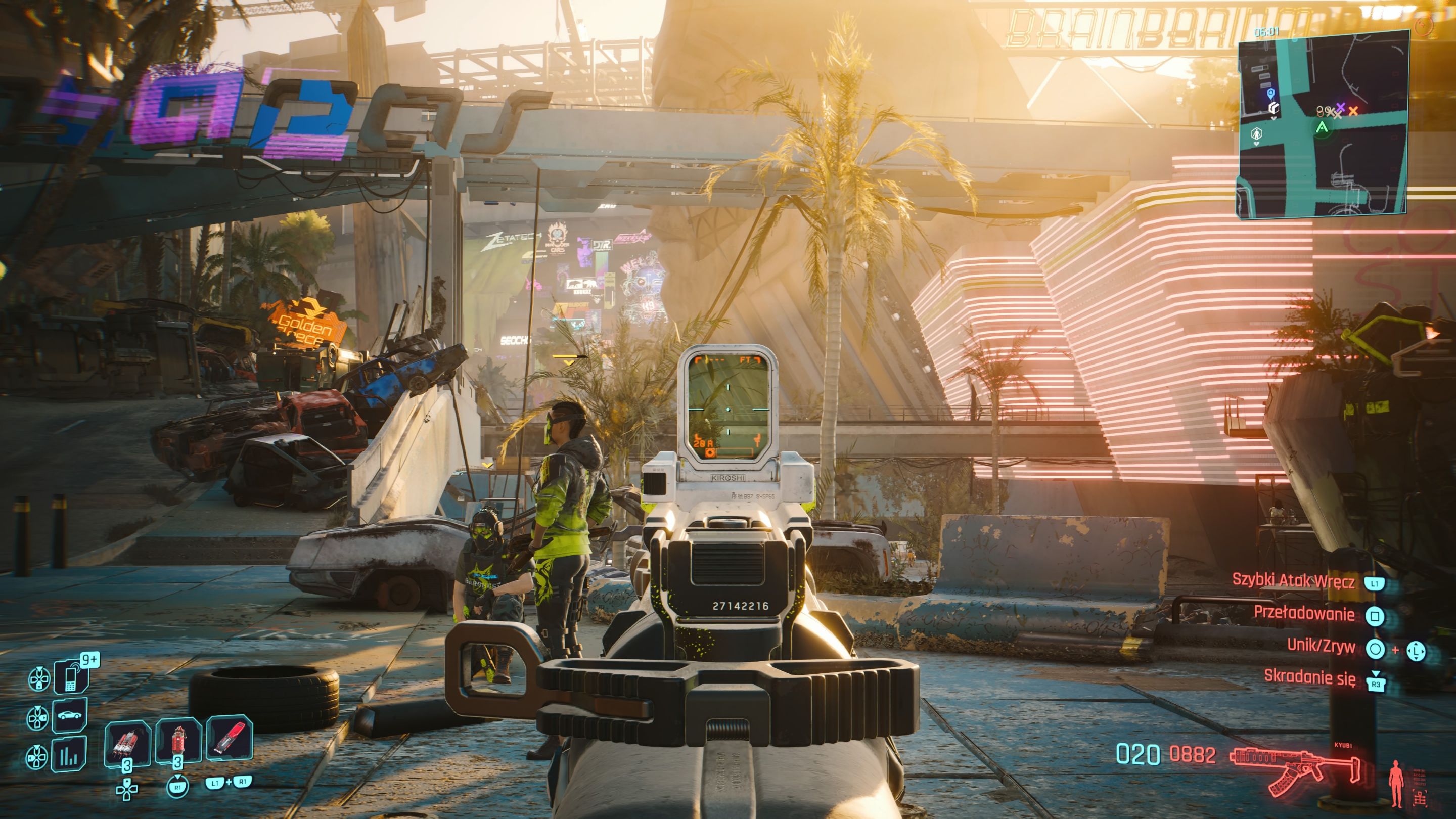
That's why this time, the developers focused on specific plots – the standard strong emphasis on several characters, industrial espionage, black technology (military technology that ordinary people will only have access to in a dozen years or never), corporate warfare, and an assassination attempt on the NUSA President in Dogtown. A new, isolated section of Night City, ruled by Kurt Hansen, a self-proclaimed paramilitary dictator. This separation helps because you can draw a clear line between one product and two. Many, or most, side quests touch on these threads to a greater or lesser extent, while also filling in the gaps (politics, organizations operating in the gap between the wealthy, the government, and the common folk). At the same time, they don't touch on topics from the second half of V's story (I'm talking about the base game), and if they do, it's in a way that doesn't clash with the story at all. Unless, of course, you've played the entire game, but as I said, it's so cleverly written that it doesn't matter when you play the expansion. Initially, I didn't notice it, but after my autistic brain found the same patterns (in dialogue, mission content, other, even subtle, references) in the fourth quest in a row, I started paying more attention.
For example, the MiliTech storyline is expanded upon. In CP2077, it looked too much like a group of American rednecks, possessing a wealth of equipment and technology but a low IQ. From what I remember, the game made this quite clear through dialogue and the situations we found ourselves in. They were simply unbelievable. By comparison, Hansen's militia resembles a well-managed (and cruel) army. The value of such a group isn't significantly higher from a combat effectiveness perspective, but it's not laughable. MiliTech's DLC often plays with forbidden or forgotten technology. It's clear their bosses have somewhat more ambitious plans than just playing war in Night City. The political thread, which was only sketched in CP2077, has also been expanded upon. I didn't feel any weaknesses in this particular aspect, as the lack of politics suited Night City's more relaxed atmosphere. However, its expansion adds another layer to the universe. Some things remain constant – you may not be interested in politics, but politics is always interested in you. While running around Dogtown, solving simple tasks or fighting random bandits, I pondered what I saw or heard during the game (whether in the DLC or the base game). Politics lies behind every storyline. If not directly connected, then at least watching its development. Just like in real life.
Upon entering Dogtown, we are immediately thrown into the fast-paced action. We must infiltrate the area where the President landed and then fend off Hansen's militia. Once we've secured her safety, we must learn the fate of her Netrunner. The hacker's disappearance was too perfect. It seemed sudden and surprising, yet perfectly calculated. Like a seasoned introvert who knows when to bail from a party to avoid questions about why they're standing against the wall. Well, questions, indeed. The President's demeanor provokes more questions. Like Silverhand, I immediately detected the stench of lies on her part. Both sides (Songbird and Myers) have their own interests and unresolved issues, evident in the way they calculate what they can and can't say. Both sides lie like a desperate man who wants to get into women's panties and will promise anything to achieve it. And then there's Solomon Reed, who's also hiding something from us. The difference is that he's not playing cat and mouse with us. Yes, he's not playing with us either, but we know the implications.
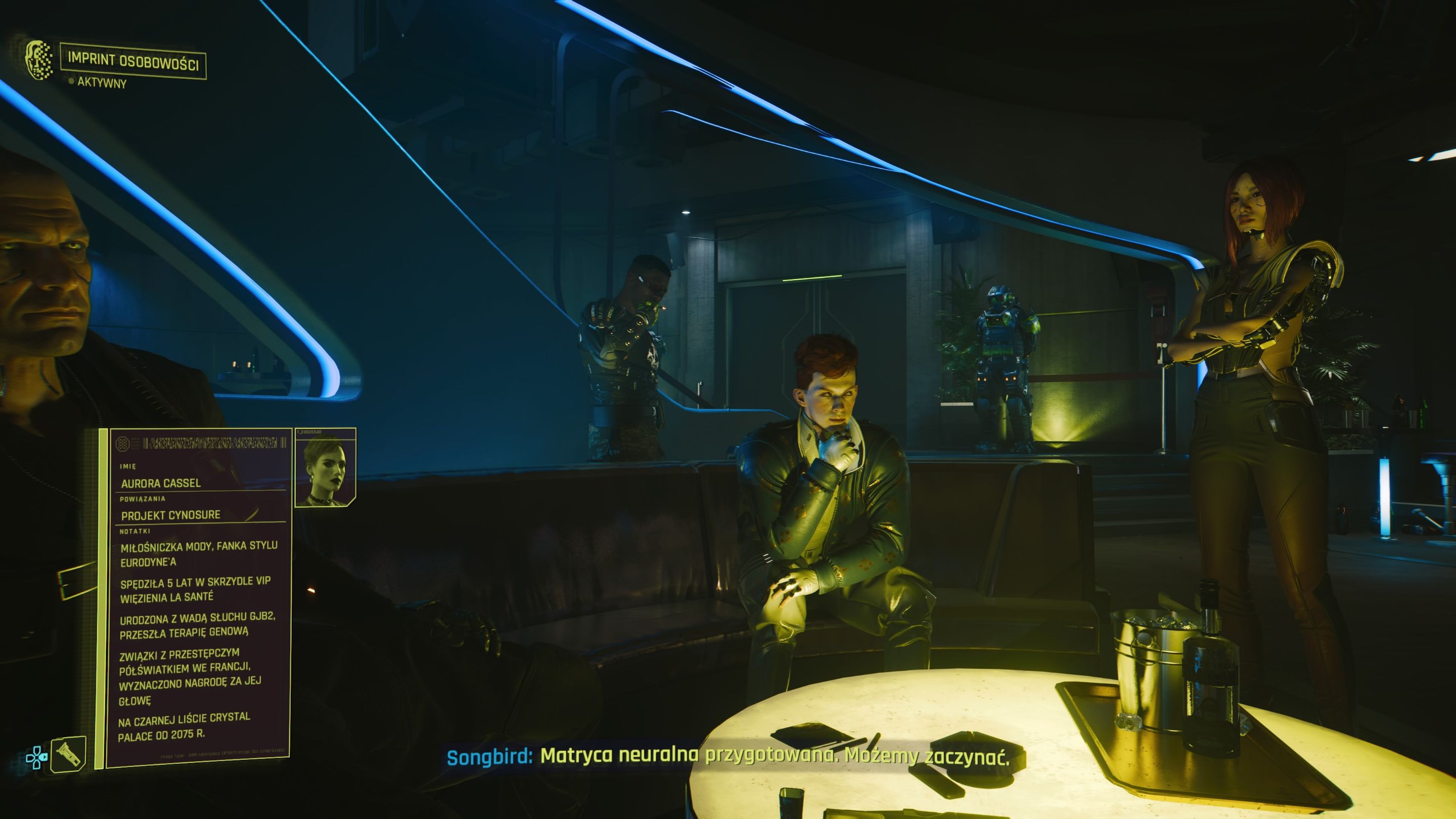
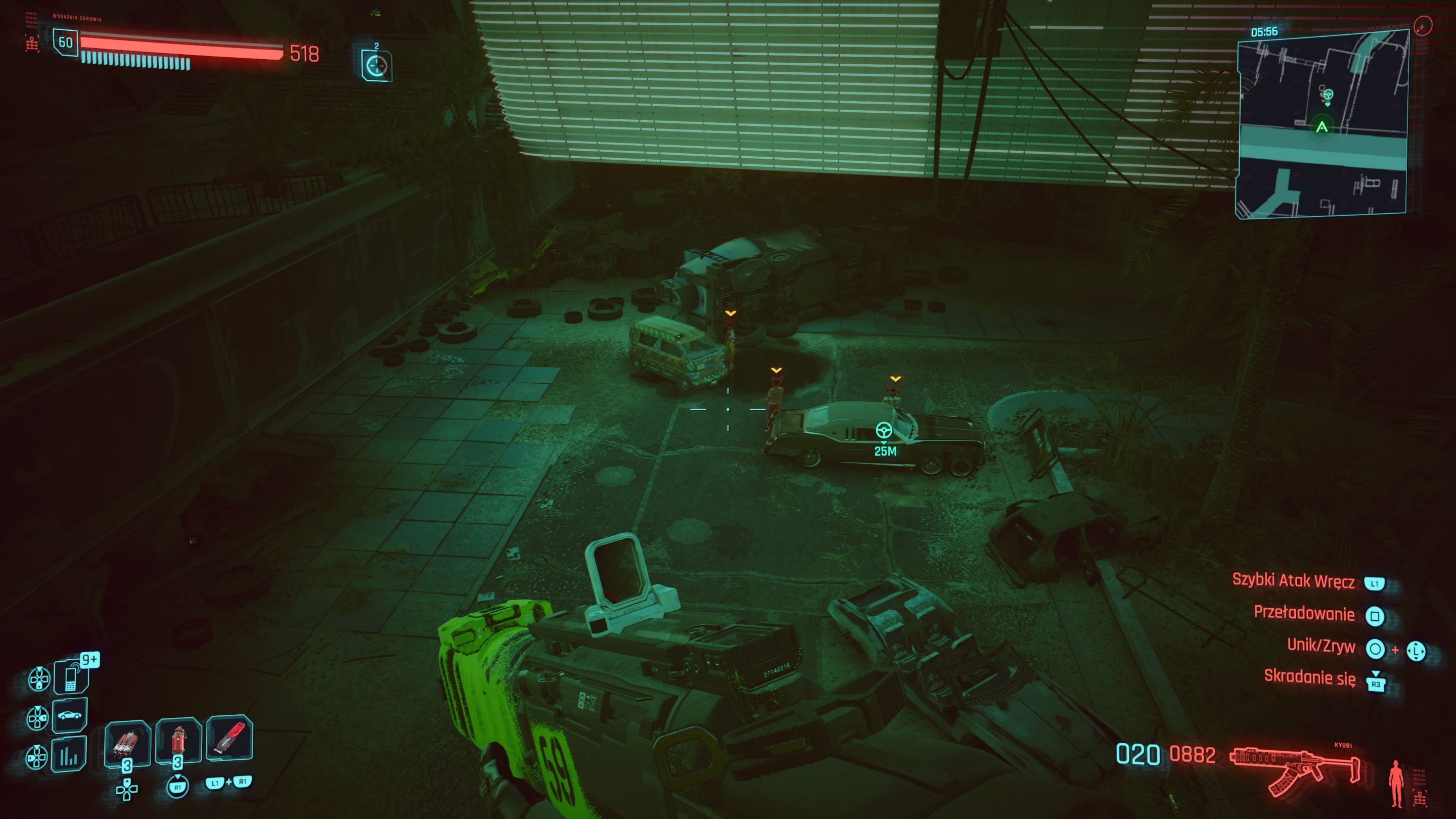
Solomon's appearance alone is impressive. Like NrGeek (the Polish reviewer), I wanted to see his face when we first met. My hand was slapped away. I was as surprised as he was. I thought it was a mistake, as I'd encountered similar ones several times. After the third time, I remembered I was dealing with a secret agent who had to hide his identity for over a decade! The subsequent scenes were equally good. Not only because of the script and the brilliantly written dialogue between Reed and V. My admiration stems primarily from the acting... and the excellent graphics, which are evident in the characters' faces. Talking with my friend Kamil about this aspect of the graphics, I remembered how similar praise was given to Half-Life 2's facial expressions a dozen or so years ago. Just after the DLC's release, Kamil raved about the numerous details and overall quality. Thanks to him, I pay attention to every facial expression of a significant character (those minor ones aren't rendered in such detail due to processing power, file size, and at least a few other factors – even the Avatar series, which are technological benchmarks for films, couldn't perfect all the Na'vi faces). The DLC for CP2077 set the bar high in this regard.
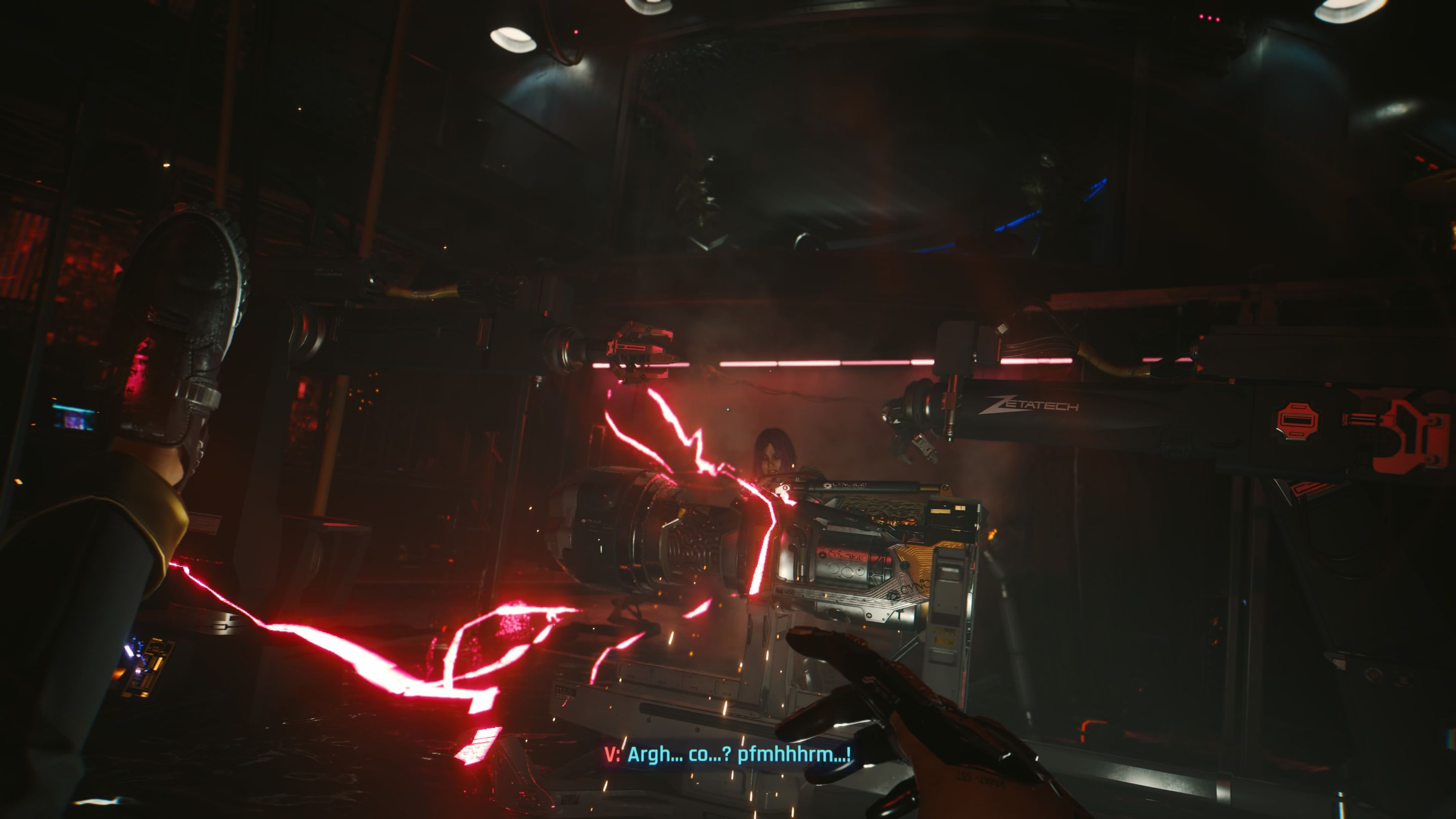
Returning to the acting, Idris Elba is probably the best actor to have appeared in this game. Although I like Keanu, in my opinion, he didn't quite deliver. Or rather, he's visually divine, the acting... OK. But his Polish voice... Mmm, fucking poetry, especially if you love vulgarity and strong language. Michał Żebrowski and Keanu Reeves are the most perfect fusion since Vegito from DBZ! Note to players outside of Poland – if you love the Polish dubbing in The Witcher for the same reasons as the original language versions in the anime (perfect actor-character fit, emotional voice acting, high-quality recordings, etc.), then play CP in Polish. Reed, on the other hand, is perfectly matched, and his voice is almost as perfect as Silverhand's. I've heard both versions, but for my first playthrough of the DLC, I chose the Polish version. He's calm, subdued, remarkably precise, and attentive, just like in the original. It's no surprise, he's an experienced actor with a talent for comedy and a knack for voice acting. You can hear this in Knuckles in the Sonic movies. He's equally believable as a bad son of a bitch or a spy. Unlike the President or Songbird, he's hard to figure out. He might seem positive, but even he can't suppress his instincts when he recalls how his own government screwed him over, leaving him stranded in a war zone for a dozen years. Despite that, I didn't doubt for a moment that I was dealing with a seasoned agent. If CP2077 were a movie, I'd say it was an Oscar-worthy performance. In fact, Idris Elba was nominated for "Best Performance" at the 2023 TGA Awards.
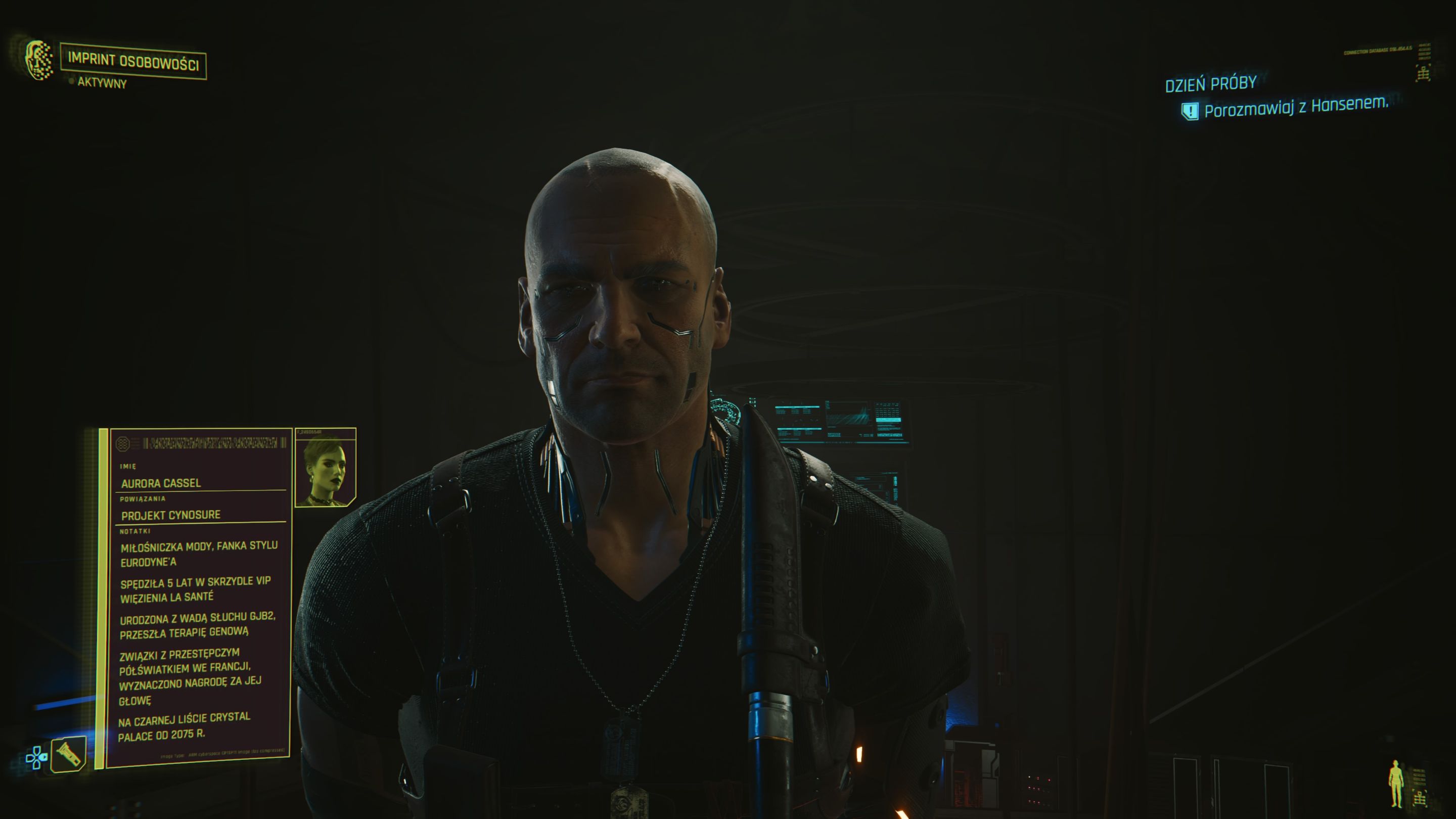
Before I elaborate on this, I need to dedicate a paragraph to other characters. I've already said everything important about Myers, but I haven't mentioned Alex and Songbird, Reed's collaborators. Alex is Idris Elba's typical "right-hand woman." One of the few people he can trust. Her role isn't overly developed—that's it, because even world-destroyers in American/Japanese comics have sidekicks. Nevertheless, she has just enough. Nothing more, nothing less. A textbook take on a secondary character—her story ties into the main plot, she has a "something" to offer, but that "something" doesn't distract us from the main story. Which isn't to say we don't sympathize with her in certain situations. As for Songbird, her story is developed primarily in the final stages of the story. Halfway through the game, I figured out why. To avoid spoilers, and at the same time, to show that this isn't a simple concept on my part. The Reed-Songbird relationship is unhappy and full of mistakes. On both sides. Songbird also didn't have many reasons to be happy before they met. I've said very little about what we see, and at the same time, I feel like I've revealed too much. But this only confirms the praise I previously heaped on Idris Elba. As their storyline unfolds, we can only guess at their motives. Sometimes we get conflicting signals, which also fits with complicated relationships.
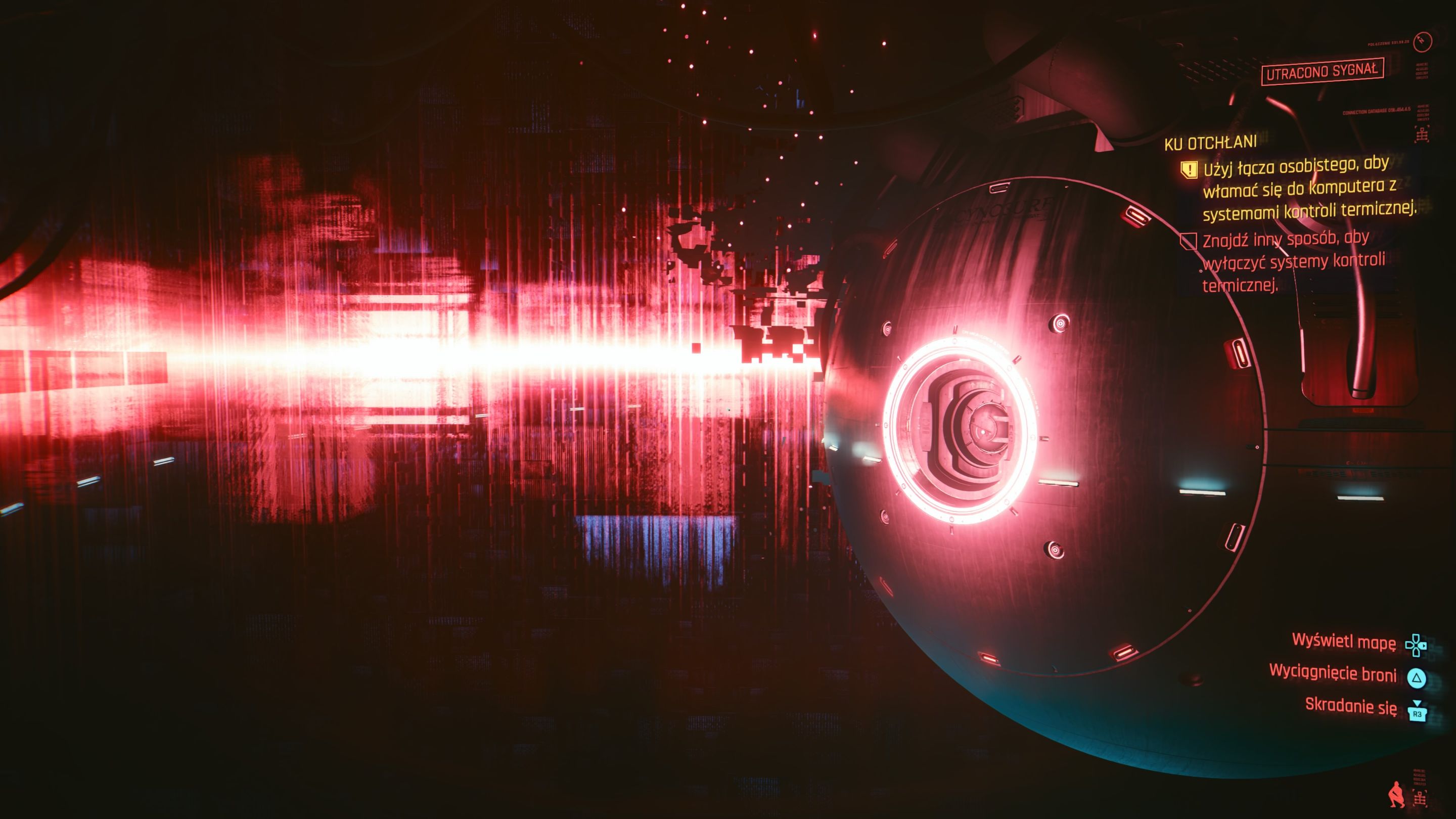
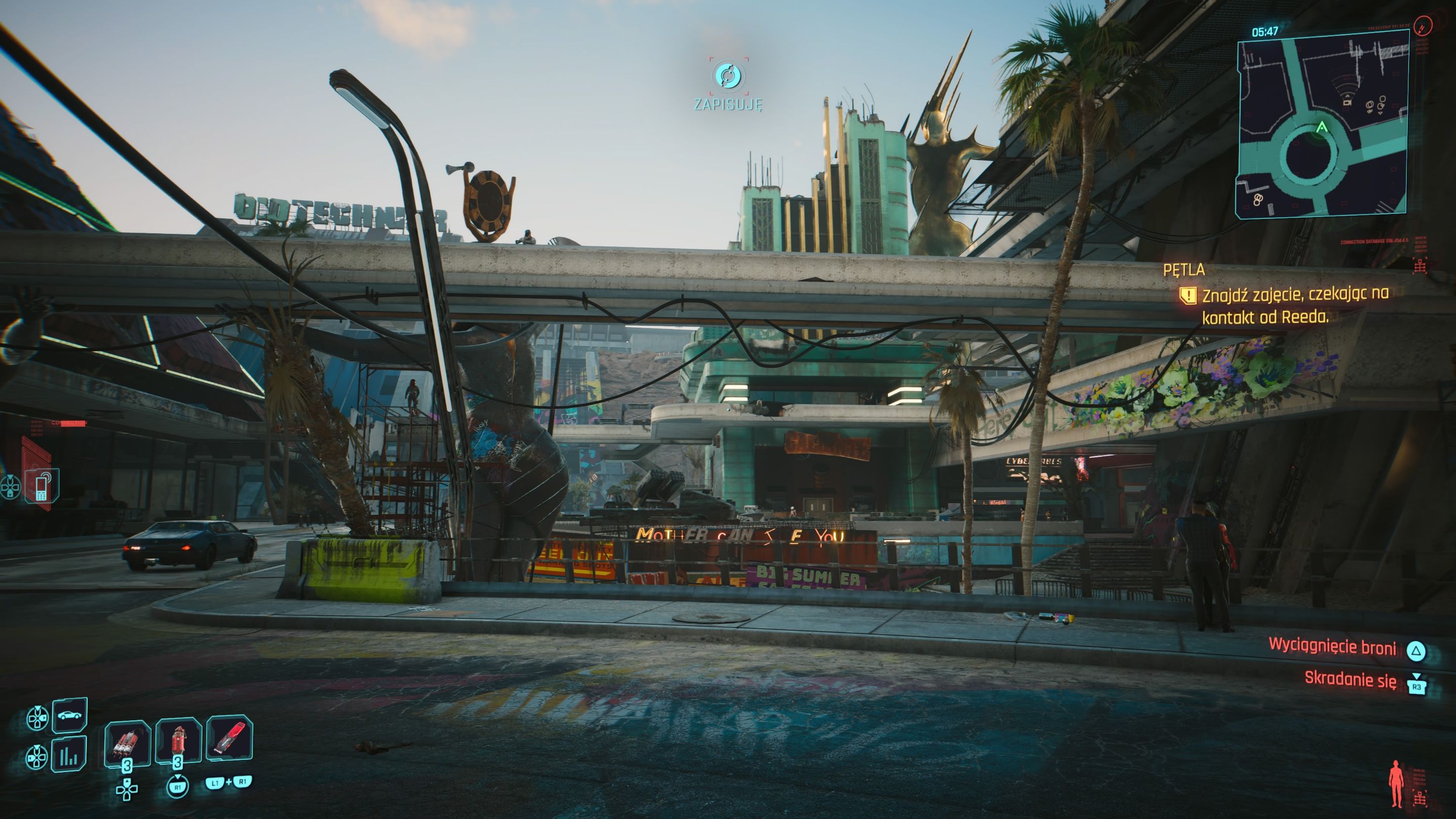
And while I'm on the subject, I like that we have more scripted scenes. These, due to their cinematic nature, were incredibly atmospheric. For example, when we took over an item that wasn't what we were supposed to get, but a transmitter that caused all the NPCs with weapons to attack us. Or when we tried to help a character, which turned out to be a fatal mistake. There were several more such actions. I'm not even mentioning the finale or other, more essential parts of the plot. These were incredibly satisfying and intense. Not all of them were "combat-oriented," but I absolutely loved them all. The soldier/policeman urinating on a wall in an alleyway, the garbage truck collecting trash from in front of houses. Sometimes I like to call CDPRed botched, but in certain respects, they represent the highest, world-class standards. The scriptwriting, directing, creating a living world, the cinematic quality of the scenes, creating atmosphere through meticulous craftsmanship or paying attention to the smallest details that many players won't notice (all those "subtle" things) are all good examples of their skills. The final segment moved me so deeply that I was moved several times. Just like in the base game, when I attacked Arasaka Tower or got the worst ending (the one in space, I was terrified as hell. Only in Returnal did I feel such intense disgust and alienation).
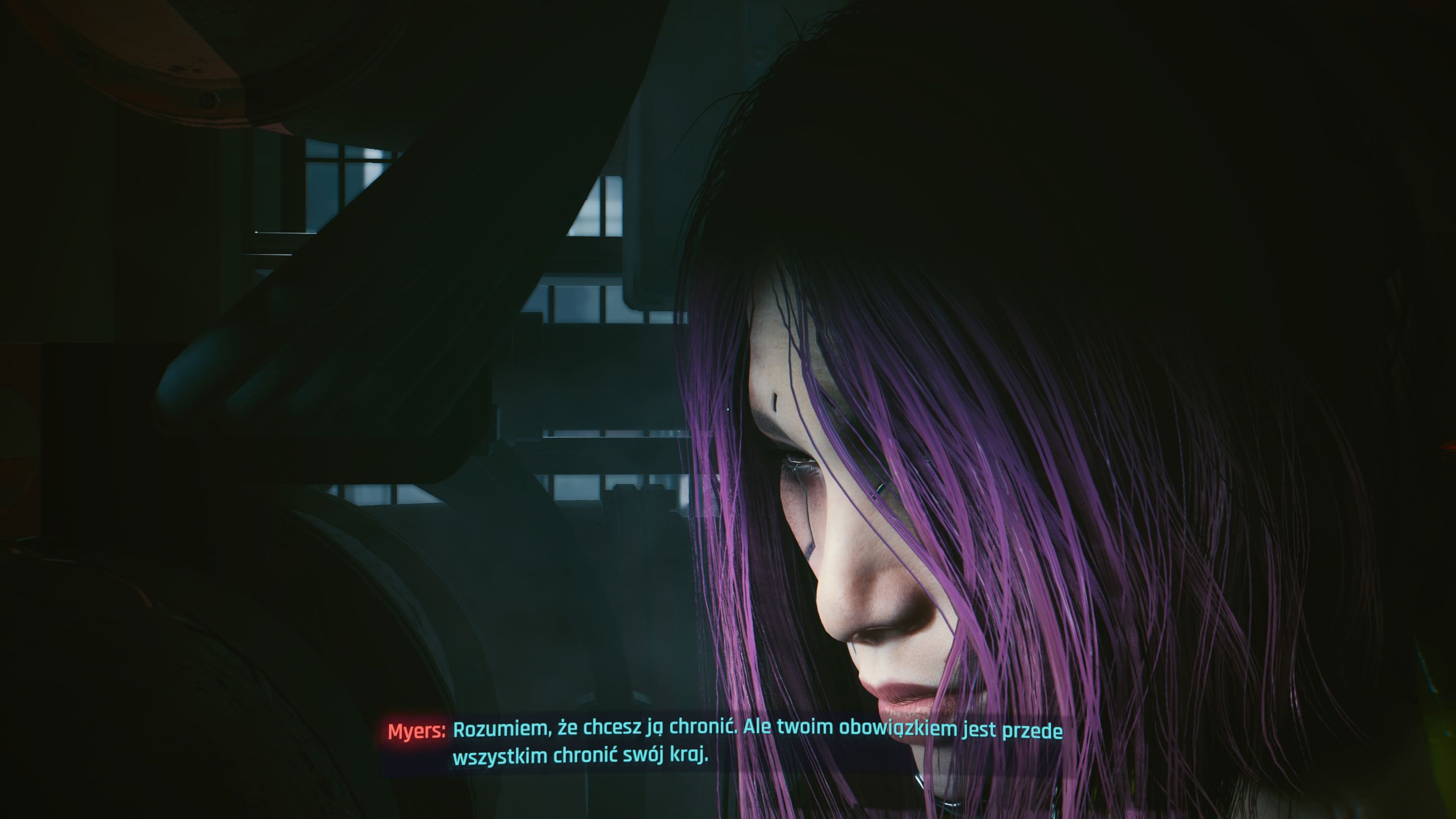
I'm talking about both versions because, like in The Witcher 2, at a certain point the scenario splits into two versions, and we can only choose one. Then the scenario splits again, so to experience everything, we have to play both versions. If we choose Songbird's path, we betray Reed and have to help the hacker escape to the moon. We'll face the NUSA, who... well, they're typical Americans in these kinds of situations. A fitting political commentary, regardless of who rules this country. If we betray Songbird, we're battling a part of her personality and... Play and you'll find out. We also have to kill the Dogtown boss. In the first variant, we only see his death. I won't reveal the rest.
Since the release of Witcher 3, the Polish studio has been known for its screenwriting skills. Sure, credit goes to the game director, screenwriter, and a few other key people, but this is their latest game to be praised worldwide in this regard. Even people who maliciously call their games a "walking and talking simulator" emphasize that they're doing so primarily to provoke fans into thrashing around like monkeys in a cage. When they're serious, they praise it highly. I wanted to feel clever here and throw in two quotes, but I only found one: "Appreciate your enemies; they'll be the first to tell you about your mistakes." The second one was about how praise from your enemies is the most valuable, and here I'll refer to Kiszak (a Polish streamer), who summed it up perfectly: "The Witcher 3 perfectly demonstrates what games can be. If we supplemented the world-building, dialogue, and characters with a better combat system and a few mechanics, we could have a game that set standards for the next decade. Poles could have their own GTA6." This isn't an exact quote, I tried to capture it as best as I could. It feels like you're inside an adult film. No, I'm not talking about cheap pornography or anything like that. On the contrary, the game's creators don't shy away from difficult topics that evoke a range of emotions in players, and they do it damn well. They also do what I noticed in the Hazbin Hotel series (as confirmed by several of my friends I spoke with) – where most creators let it go, declaring it "good enough," they claim "something's missing." For example, an additional scene, a comment from Silverhand, V, or another character, or something else that would highlight the unfairness of life or its duality (in the context of everything having two sides to a coin).
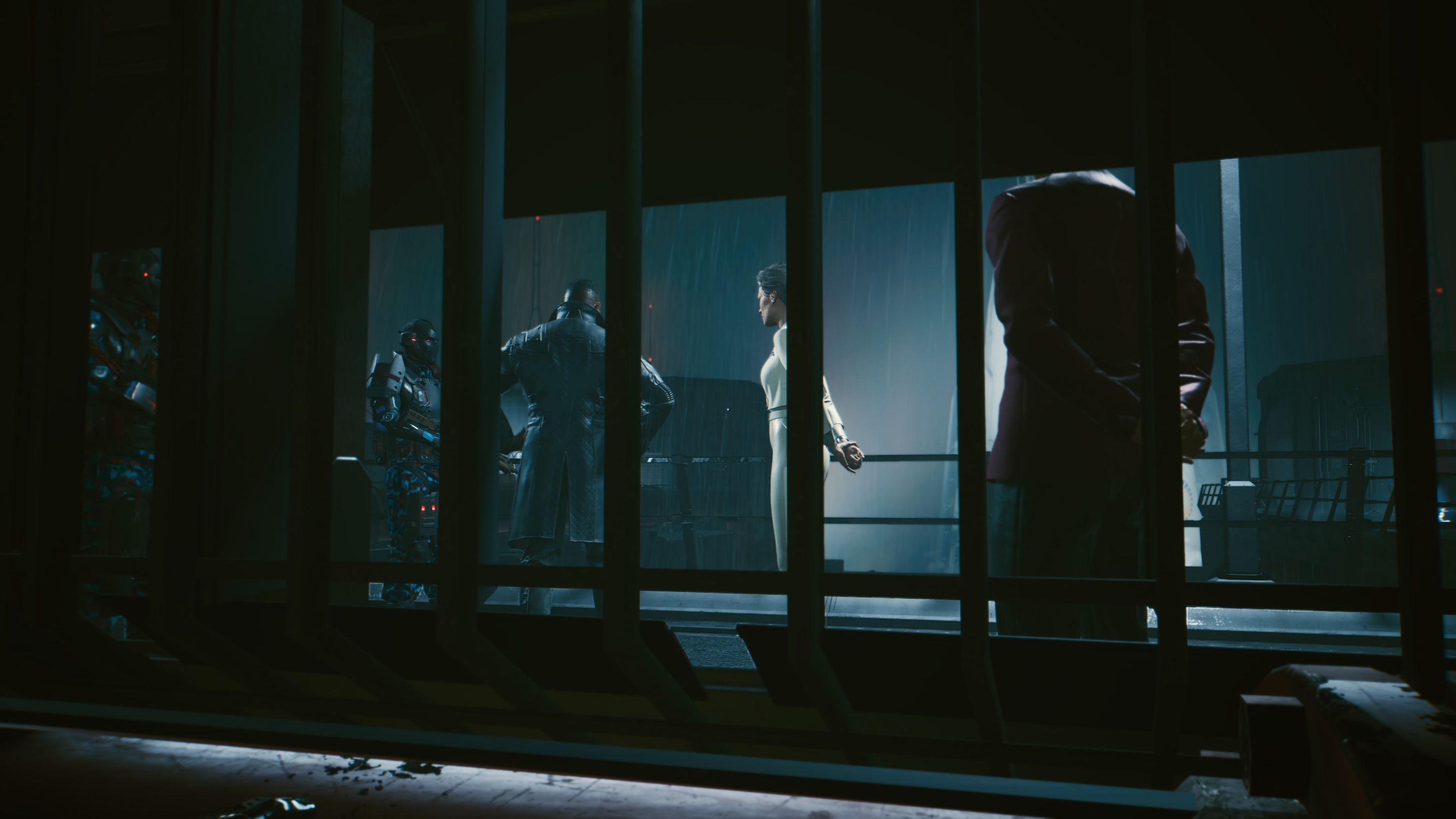
As for the rest of the plot, at some point we'll meet Mr. Hands in person. He's my favorite Fixer. Since childhood, I've preferred concrete and coherent people, and Mr. Hands has been exactly that way from the beginning. It turned out we had something else in common. He likes to plan, play 4D chess, observes several front lines, has a plan that he meticulously implements, is interested in politics, and more. He's not as compelling a character as Solomon Reed, but I have absolutely no complaints either. He's just a well-executed archetype of a character who operates in the shadows and solves cases through other people's hands. That's probably why he's called Mr. Hands (just kidding).
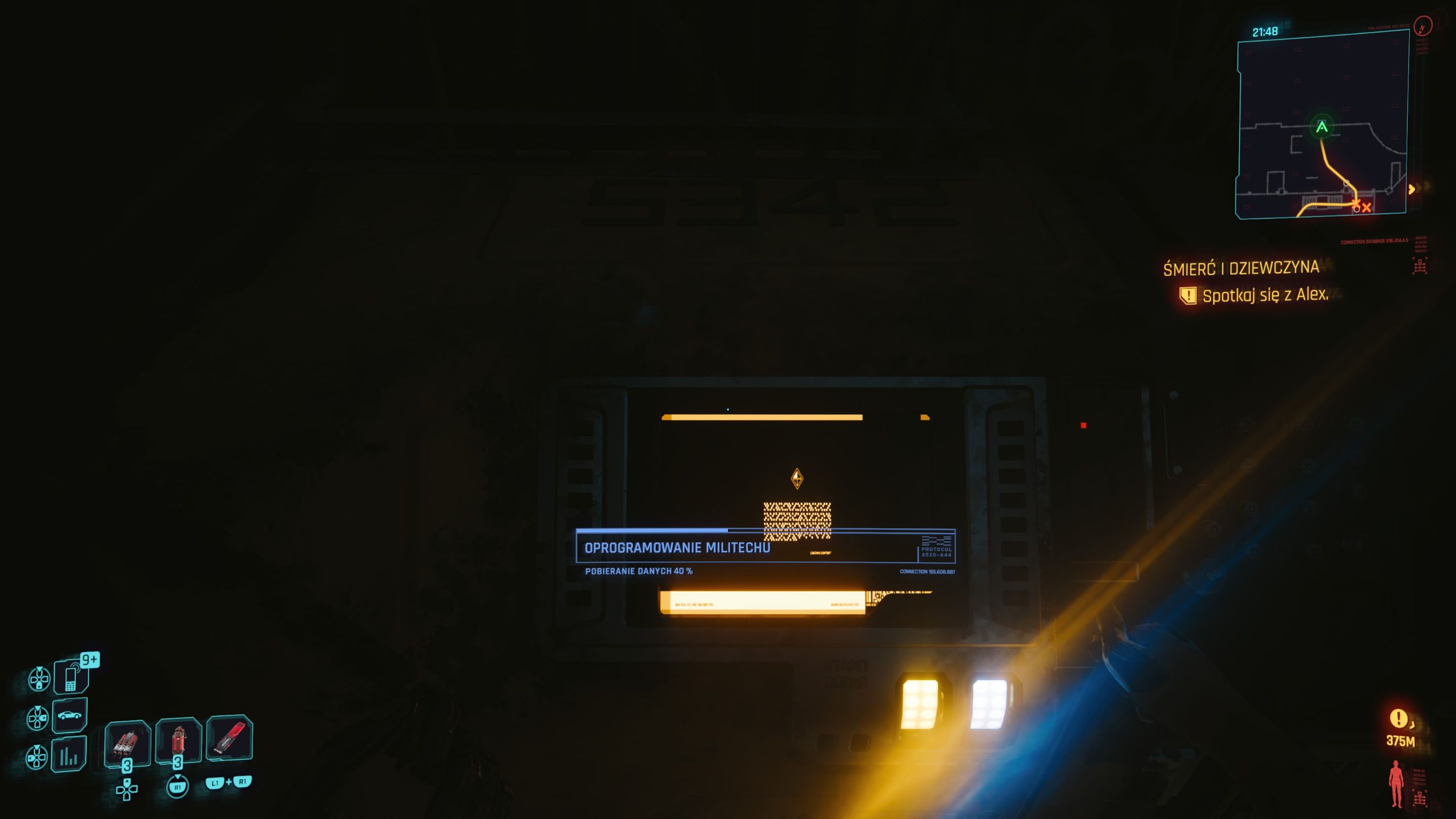
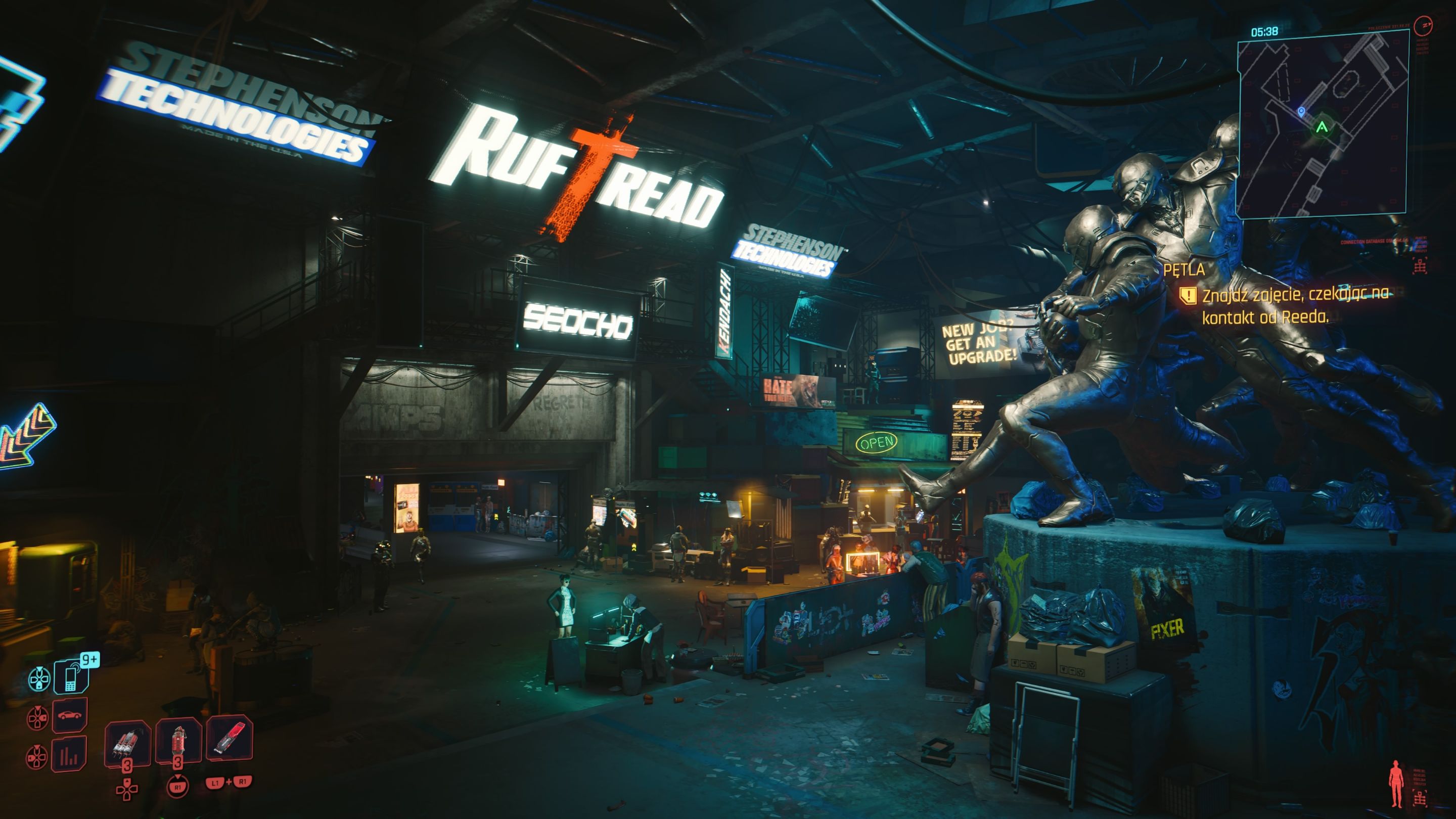
[Gameplay and New Mechanics] Aside from the new weapons, new shooting options, and car hacking, I didn't notice any major changes. From what I can see, the police, vehicles, and skills have been reworked, and new cars and weapons have been added, but I'll probably only notice them after my second or third playthrough. I usually don't pay attention to this kind of thing because it's too new to me. Especially since I've been alternating between Phantom Liberty and Doom 3 & 4. The police definitely still don't work as they should, as I slaught